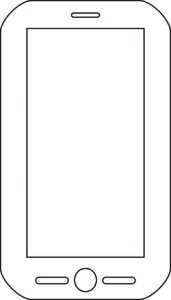July 21, 2015
On July 10, 2015, the Federal Communications Commission (the “FCC” or “Commission”) released its long-awaited Declaratory Ruling and Order, which was prompted by nearly two dozen petitions and letters requesting clarifications relating to the Telephone Consumer Protection Act (the “TCPA”).
While addressing three such petitions from mobile application (“app”) providers YouMail, Inc. (“YouMail”), Glide Talk, Ltd. (“Glide”) and TextMe, Inc. (“TextMe”), the FCC identified and utilized a number of factors to determine whether app providers “make” or “initiate” calls for purposes of the TCPA.
How can app providers avoid TCPA liability?
When do app providers “make” or “initiate” calls under the TCPA?
In its latest TCPA ruling, the FCC relied on its 2013 DISH Network declaratory ruling, which found that a person “makes” or “initiates” a call by either: (1) taking the steps necessary to physically place the call; or (2) being so involved in placing the call as to be deemed to have initiated it.
Applying the DISH Network standard to telemarketing text messages delivered via mobile apps, the FCC identified three main factors to determine whether app providers make or initiate automated text messages for purposes of the TCPA:
- Recipients: Who determines whether to send messages and who the recipients should be?
- Content: Who creates the content of the messages?
- Timing: Who controls the timing of the messages?
The FCC noted that additional factors could weigh against app providers in this analysis, including engaging in unlawful activity such as spoofing numbers or blocking Caller ID information.
A Tale of Three Apps
In this month’s ruling, the Commission reiterated that text messages are “telephone calls” within the meaning of the TCPA. Additionally, the FCC examined the respective telemarketing practices of three app providers to determine whether they made or initiated calls that warrant TCPA regulation:
YouMail: The YouMail app allows users to manage missed calls. In some instances, the app delivers automated text messages to consumers in response to voicemail messages that have been left for the app user by calling parties. Users of the YouMail app determine whether to send automated text messages, which categories of callers should receive them and the content of the messages.
According to the FCC, “YouMail’s app is reactive in nature” and, therefore, the app provider does not make or initiate the subject text messages under the TCPA. The Commission determined that “YouMail is not the maker or initiator of the text because it does not control the recipients, timing, or content, but instead merely has some role, however minor, in the causal chain that results in the making of a telephone call.”
Glide: The petition of video messaging app provider Glide was not as well-received by the Commission. Glide purportedly: (1) automatically sent text message solicitations to all of its users’ contacts; and (2) used pre-written message that users could not edit.
The FCC concluded that the Glide app provider made or initiated calls under the TCPA because “the app user plays no discernable role in deciding whether to send the invitational text messages, to whom to send them, or what to say in them.”
TextMe: The TextMe app, which provides text messaging and voice call services, allows users to send invitational text messages to contacts in their phone’s address book. Users choose whether to invite all or some of their friends, or none of them. TextMe, however, determines the content of these messages.
Noting “that TextMe’s control of the content of the invitational text message is a reason for concern,” the FCC nonetheless determined that the app provider is not the maker or initiator of the invitational text message, but merely “has some role, however minor, in the causal chain that results in the making of a telephone call.”
App Providers: Proceed with Caution
As the Commission’s varying treatment of the YouMail, Glide and TextMe apps demonstrates, the ruling does not exempt all app providers from initiator liability under the TCPA. When determining who makes or initiates a call from an app, the FCC will weigh a number of factors to determine whether the app provider or the user was ultimately in control.
While obtaining the prior express written consent of app users undoubtedly remains the safest route for app providers (in addition to app users, where applicable), the Commission’s new ruling should provide additional protections for operators in this space. If you are interested in learning more about this topic, or need to review your telemarketing practices, please e-mail us at info@kleinmoynihan.com, or call us at (212) 246-0900.
The material contained herein is provided for informational purposes only and is not legal advice, nor is it a substitute for obtaining legal advice from an attorney. Each situation is unique, and you should not act or rely on any information contained herein without seeking the advice of an experienced attorney.
Attorney Advertising
Related Blog Posts:
Proposed FCC Telemarketing Actions – “Most Significant Since the Do-Not-Call Registry”
FCC Holding of Vicarious Liability under TCPA Stands
Voluntary Mobile App Code of Conduct Draft Issued Governing Privacy Notices




